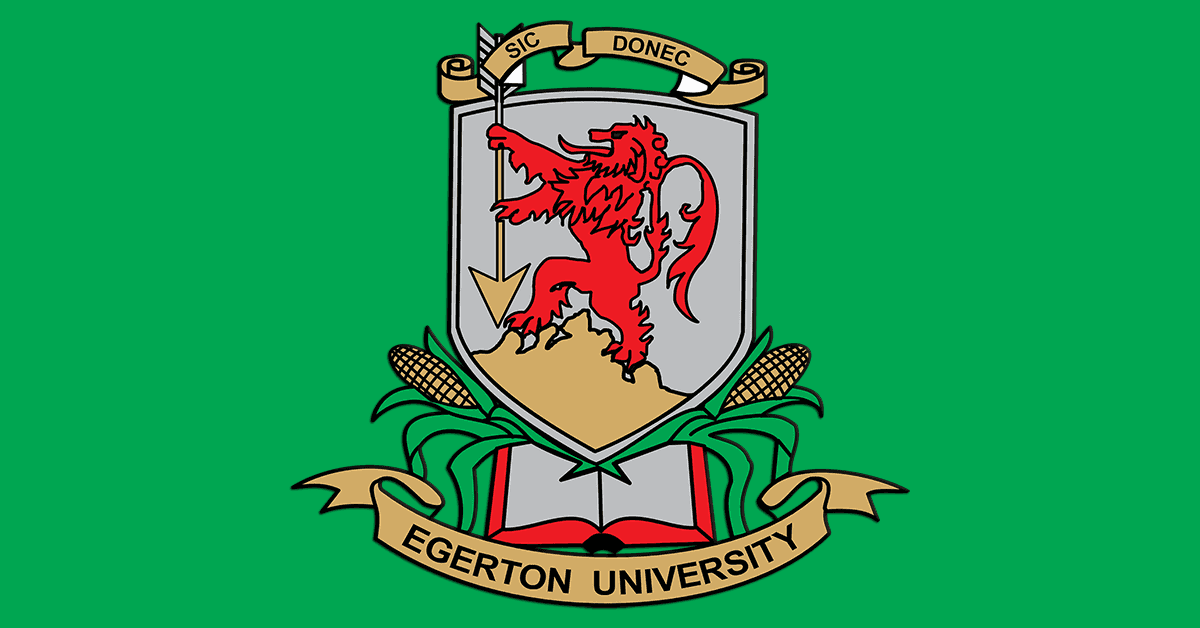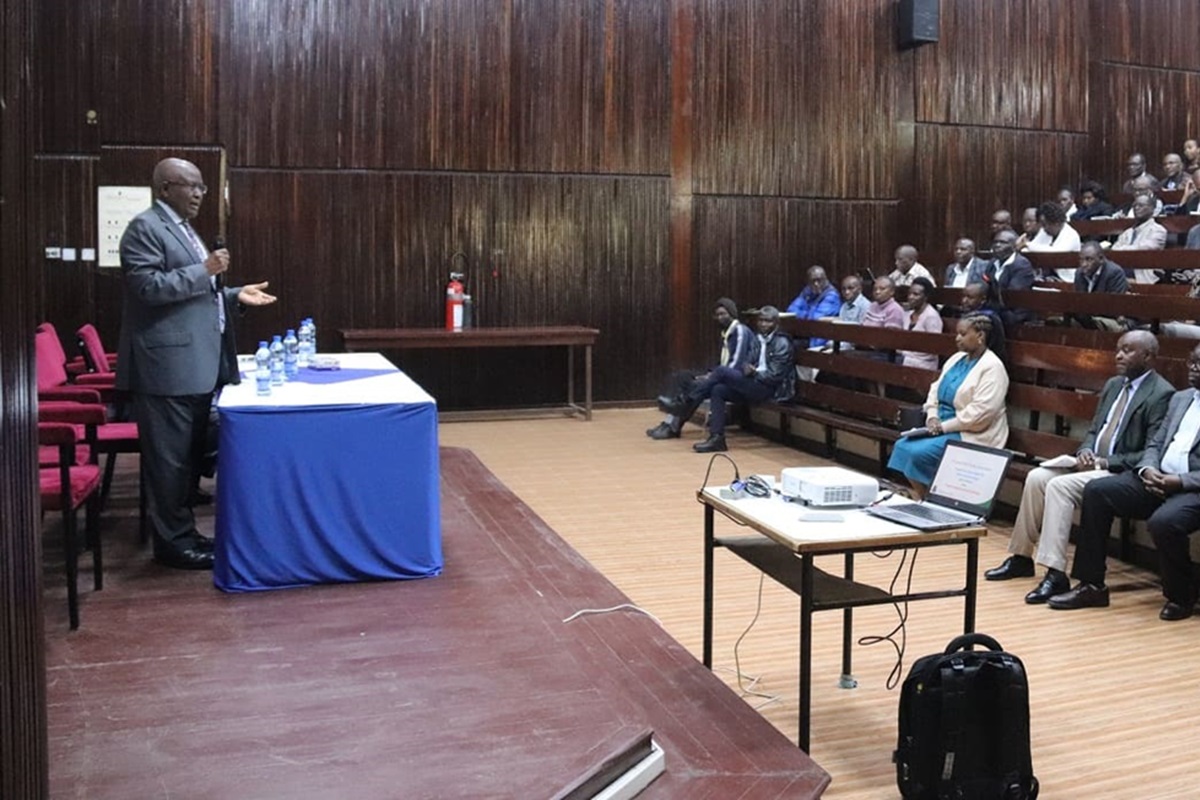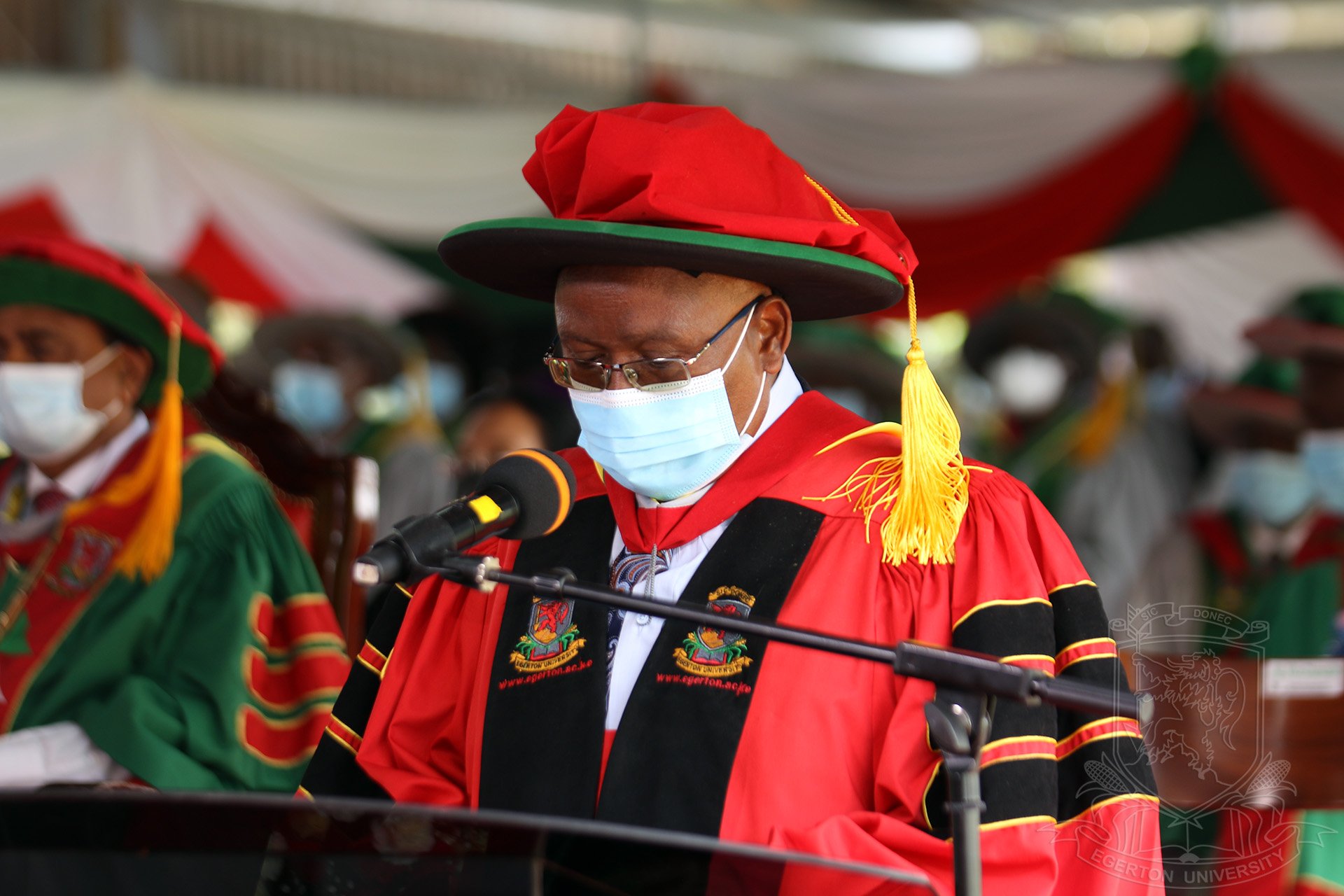In Kenya, the ideology of African Socialism as stated in Sessional Paper No.10 of 1965, it was hoped that we could bring about equality between men and women as soon as possible through their participation in national development (Republic of Kenya, 1965).
Prof. Isaac O. Kibwage, Vice-Chancellor
Speech by The Vice-Chancellor During the Egerton University 20th Gender Awareness Day
Theme: Women in Leadership: Achieving an Equal Future in a Covid-19 World
The Chief Guest, DVCs (AA, APD & RE), Deans & Directors, CODs, Lecturers, students, invited guests, ladies and gentlemen, good morning.
We are here today for yet another Gender Awareness Day that we at Egerton University celebrate each year on the 17th of October though there is a slight change in this year’s calendar.
The gender awareness celebration is the outcome of the global 16 Days of Activism which originated from the first Women’s leadership conference in 1991. The day is used as a public forum to:
- Raise awareness on issues that affect women in society,
- Celebrate solidarity of women around the World,
- Pressure State-Actors and Non-State Actors to implement strategies and policies that are gender responsive and inclusive thus leading to gender equality.
This year’s theme is“Women in Leadership: Achieving an Equal Future in Covid-19 World”.
Ladies and gentlemen, this day is not about women asking for increased leadership rights from men as widely perceived in society. It’s a day for us to not only celebrate, but also create awareness on women’s progress in socio-economic participation, and appreciate the barriers that stand in their way to leadership including the Covid-19 pandemic that has put women under immense pressure in all fronts. The day also allows us to advocate and stimulate public debates on why gender equality is key for the advancement of women in leadership positions in our society.
In Kenya, the ideology of African Socialism as stated in Sessional Paper No.10 of 1965, it was hoped that we could bring about equality between men and women as soon as possible through their participation in national development (Republic of Kenya, 1965). This unfortunately, did not happen. Since then our society has gone through a lot of changes. These have included a lot of activism agitating for gender equality and women empowerment, and currently, the challenges of Covid-19 pandemic. However, the Kenya constitution (2010) has opened a very wide latitude for Gender equality in all spheres and at all levels of development in our society. This is sure to boost our progress not only towards the Big 4 Agenda but also the Kenya vision 2030.
Ladies and gentlemen, as we celebrate today, we must reflect on the rough road we have ridden to in a bid to achieve an equal future where men and women can equally be represented in leadership positions. While we at Egerton University have covered some considerable ground in ensuring that women are promoted to leadership positions just as men, much more still remains to be done. Gender inequality is still evident at the University as indicated by our recently reviewed Gender Policy and policy and procedures on Gender based violence and Sexual harassment prevention; which I will be launching in a short while. All the supportive data through baseline survey, 2021, indicate that as, a University, we are on the right path towards achieving gender equality in all our academic, leadership and research endeavours, though there is still room for improvement for maximum development.
Ladies and Gentlemen, to succeed in dealing with the issues of inequality that include gender based violence and discrimination (esp. against women, girls and other marginalized groups), we must all wake up to the reality that we need one another as men and women. We must put more effort in building the capacity of our men and women at the University to help them appreciate the importance of gender mainstreaming hence gender equality in development.
Ladies and Gentlemen, this year's theme is important because:
- It celebrates the tremendous efforts by women and girls around the world in shaping a more equal future and recovery from the COVID-19 pandemic and highlights the gaps that remain,
- It acknowledges that despite Women’s full and effective participation and leadership in all areas of life, they are still underrepresented in public life and decision-making. For example, only 24.9 per cent of national parliamentarians globally are women while in Kenya, it is only about 19%,
- Women are also at the forefront of the battle against COVID-19, as front-line and health sector workers, as scientists, doctors and caregivers,
Ladies and Gentlemen, as already indicated, we at Egerton University have put in place various policies and strategies to help promote gender equality and women leadership through research and innovation. This is an ongoing process that requires collective responsibility. And therefore, as we celebrate this day, let us take up the mantle to support gender equality policies and strategies wherever we may be. I am aware of the challenges standing in our way, including the Covid-19 pandemic but we must remember that our Institution, surrounding communities and society at large depend on us to act as role models because we have inclusive mind sets for equitable development.
As I conclude ladies and gentlemen, allow me now to invite our chief guest....................to make her/his remarks….… (Reads his/her short profile).








